Meeting Hom, our sponsored child in Thailand!
Marine is sponsoring Janyawan (Hom), a little boy from Thailand. During her trip to Thailand, she visited him at his school…
“Due to the lockdown, we are not able to go into the villages, and we do not know when that will change.” Sister Phuong.
These are the words of Sister Phuong, a nun whose convent is in the mountains of central Vietnam. She was at a point of desperation, last February, when she wrote to us about the distressing situation of the villagers in her region. “Four villagers swam across the river to come and ask me for food. Unfortunately, the authorities would not let us go and help them!”
Vietnam is currently in partial lockdown following the fourth wave of Covid-19. However, Anh Liên Do Khac, Vietnam programme manager at Children of the Mekong, puts the information into perspective: “Since the first lockdown in January 2020, with school closure for three and a half months until mid-May, the country has not had such a strict nationwide lockdown. Instead, ad-hoc lockdowns are put into place according to the health situation in each area. While the most recent wave last February affected the centre of Vietnam, the north and a few areas in the south are becoming increasingly affected now and are back in lockdown.“
The health crisis in Vietnam is managed on a case-by-case basis by applying strict rules at a local level. People’s daily lives are in turmoil, but Anh Liên Do Khac wants to reassure them: “The situation is not as bad as it was for students because lockdowns are often implemented during school holidays or even at the end of the year, as was the case in Tet last February, and even now. Exams were also rescheduled, which helped to reduce the negative impact of the pandemic on the school curriculum.” The only exception was the summer camps held by Children of the Mekong across the country for its sponsored children to help them maintain a good level at school and keep up their motivation to study. “Several of them will have to be cancelled”, says Anh Liên apologetically.
If the general state of Vietnam does not seem worrisome at the moment, the calls for help are multiplying, as illustrated by sister Phuong and the four villagers desperate to feed their families. The situation is the same in the cities; the poorest families are the first to suffer from the lockdown measures – such as borders closure and tourism restriction- imposed by the government.
“A lot of the parents of our sponsored children were motorcycle taxi drivers or mobile sales-people. They relied on tourism for a huge part of their income. From one day to the next, these families find themselves without any source of income”, Anh Liên adds, “the largest number of calls for help that we receive in urban areas are actually from students.”
Many of them have to study online and have had their lives transformed by the pandemic. Hang was evicted from her boarding school, which had been requisitioned to house those in quarantine. The young girl was already in debt. She had to pay for her stepfather hospital treatment, who had died from cancer three months ago. She now rents a room with other students. This is yet another burden to be borne when the jobs available to students (waitressing, sales, etc.) have dramatically reduced as a result of lockdowns. Anh Liên tells us that “we have allocated an additional 500 euros to Hang so that she does not have to go without food to be able to pay for her studies”. This is a real, concrete example of the stresses that sometimes drive students to question their studies to the detriment of all that they have learnt and achieved up to that point.
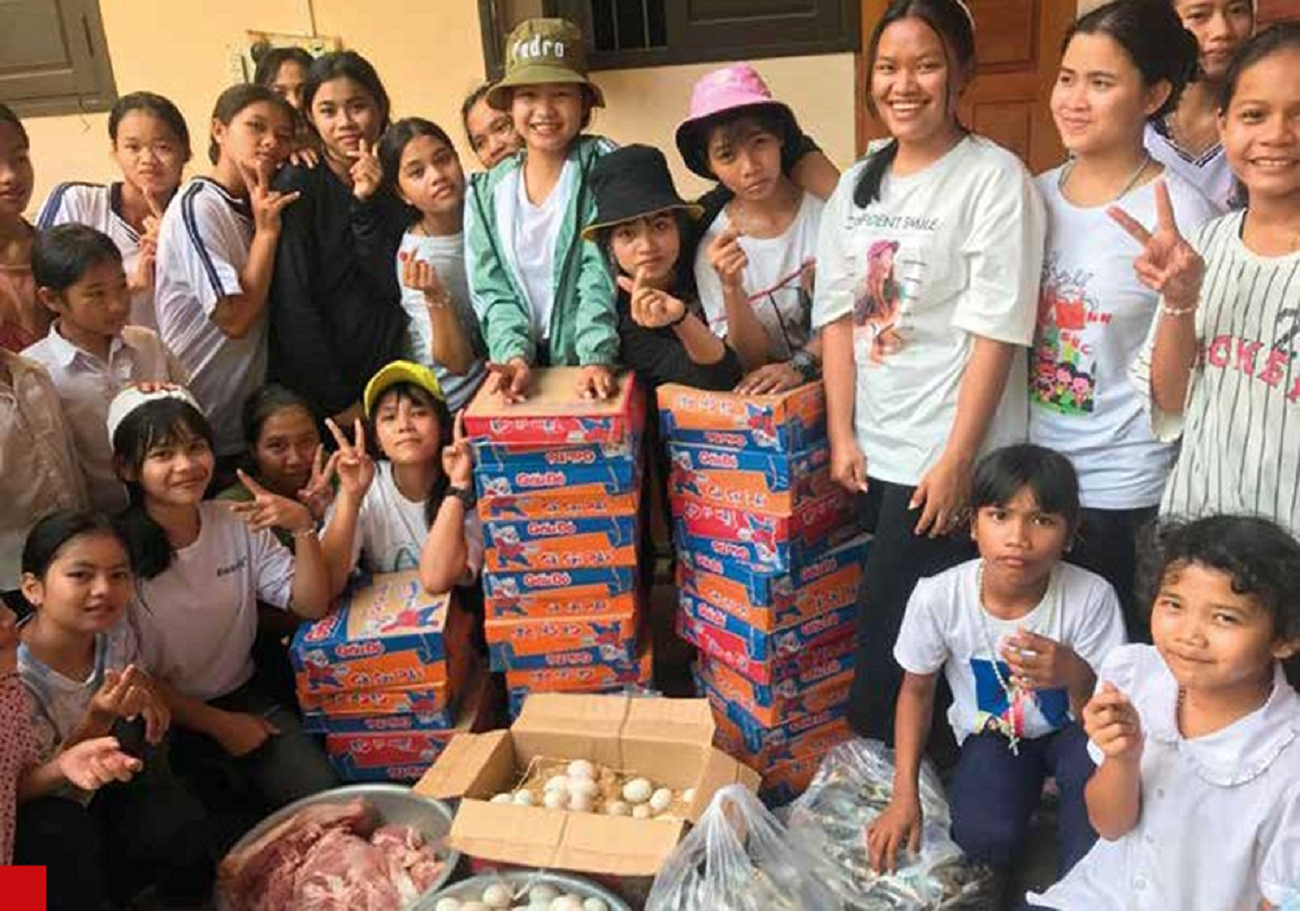
In the Vietnamese countryside, which houses the majority of the country’s population (6 in 10 people in Vietnam live in a rural area, compared to 2 in 10 in England) and 80% of our sponsored children, the farmers suffer the most. “The restrictions on movement stop people from selling their crops, which causes a huge income decrease”, explains Anh Liên.
In the country’s poorest areas and in the central mountains, the rules are stricter because of the borders with Laos and Cambodia. Therefore, there is a real need for aid for families who are short on rice, which is a staple for them.
The local programme manager of Children of the Mekong tells us that “thanks to Children of the Mekong’s emergency aid program, 89,825 kg of rice have been distributed to 1,896 families of 4 to 5 people within just one year“.
Learn more about our privacy policy here.

What Anh Liên finds even more astonishing is the incredible investment from the local Children of the Mekong representatives: “A lot of people here in Vietnam are apprehensive and stressed about Covid-19. Our managers who organise Children of the Mekong responses for villages or areas are no exception. However, the number of infections is far from that in Europe; in a population of 98 million, there are currently around 400 people infected with coronavirus. But the Vietnamese are by nature very rule-abiding people.” So, when some decide to ignore the rules and brave them to help the weakest and most vulnerable, they garner even more admiration. This has been the case for several Children of the Mekong’s volunteers in Vietnam over the last few months.
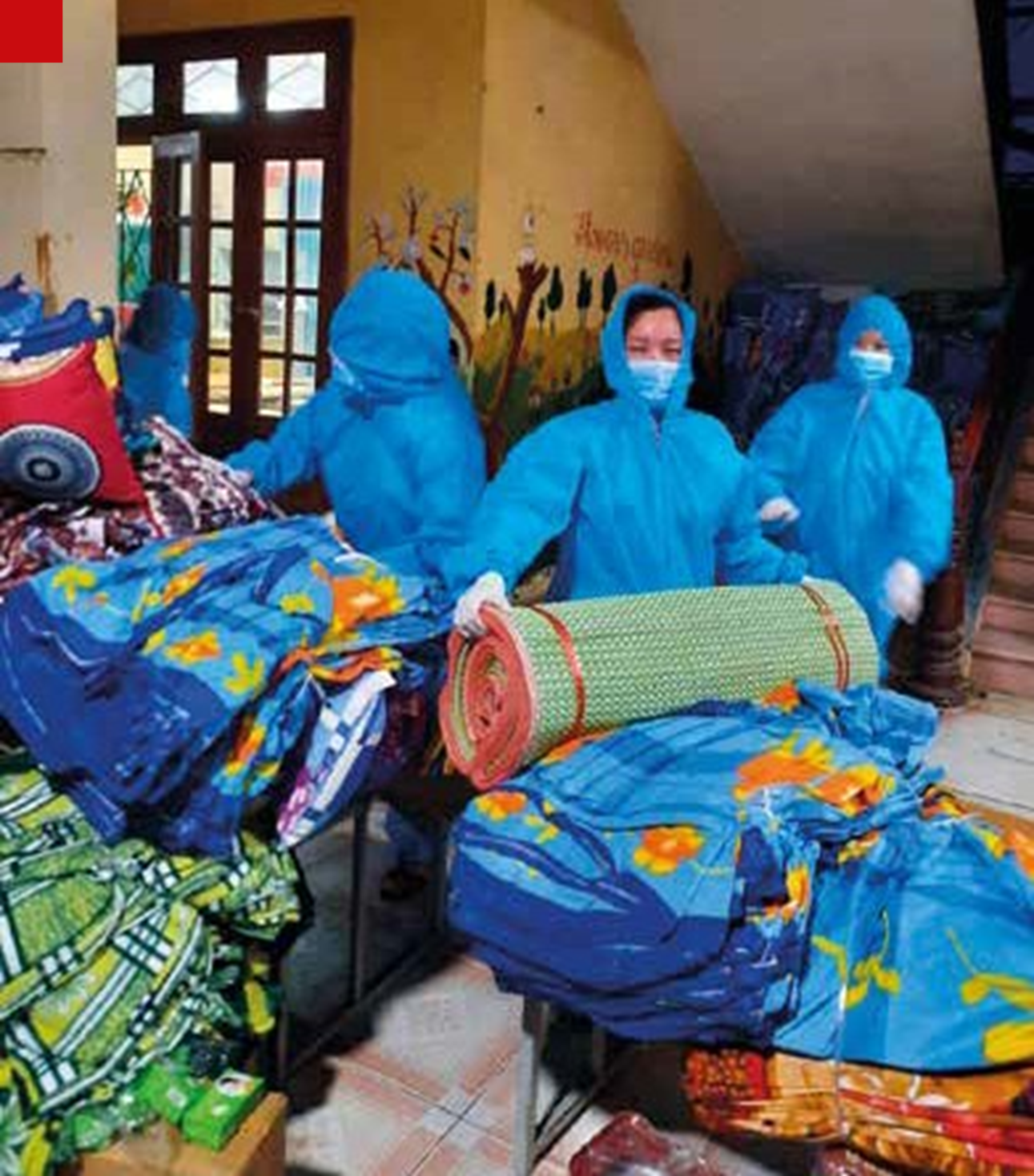
For some, like the nun in the north of the country, this has even been seen as a mission and a personal engagement: “I am pleased to be able to help the victims of Covid-19. For me, it’s a huge responsibility and an enormous challenge, but it is also a time for us sisters to leave the safety of our convent and go to meet the victims, the poor and the helpless”. Southeast Asia was hit by the SARS coronavirus epidemic between 2002 and 2004, as well as bird flu and swine flu. Familiar, therefore, with pandemics, some have developed incredible resilience and have been surprised at the joy of giving.
Khanh Hoa explained, “when you offered us special support from the organisation to come and help those who were suffering from hunger during the pandemic, at first we thought that we were too busy to accept. It meant visiting the poor in the countryside, looking for the most in need, and so on, all requiring time and energy that we did not have. But we finally accepted your help, and we certainly do not regret it. We are happy because it has allowed us to get to know those who need help. We now know the poor, the sick and the elderly who are around us much better, and we are more concerned about how we can help them in the future.”
“We already have an excellent local network in place, but they are the ones who took the reins during this crisis. They allow us to stay in contact with the majority of the families that Children of the Mekong support”, confirms Anh Liên. “The network is still dynamic, and there is no shortage of projects.” The projects are all the more important as the crisis affects not only Vietnam but also France. The effects on the ground are already being felt. “A lot of people have stopped their collective sponsorship, and so we are beginning to lack funds on the ground”, Anh Liên tells us, saddened. This has happened recently in Can Tho, in the south of the country. “We have been apprehensive since the beginning of the crisis”, explains Rose, director of an orphanage in the village. “We have lost several sponsors even though the economic difficulties are much greater this year.“ To reduce spending, the director has to reduce meal portions for the children. “We do not dare ask for more because we know that in France too at the moment, Covid-19 is complicating the situation and that there is even more unemployment.”
The final word comes from Sister To. Busy in her dispensary, she sums it up quite nicely: “Where there is a cry, there is a responsibility!”
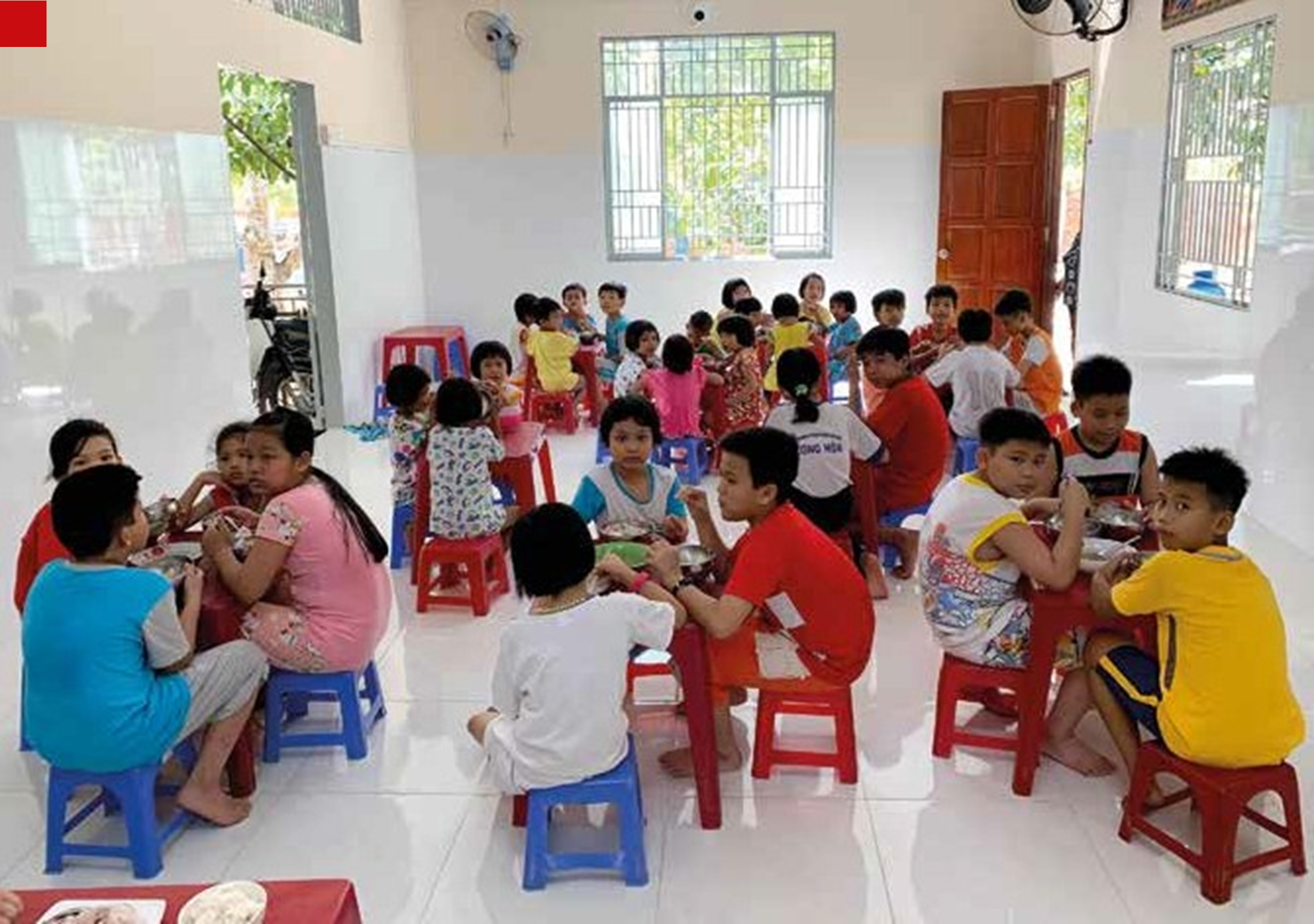
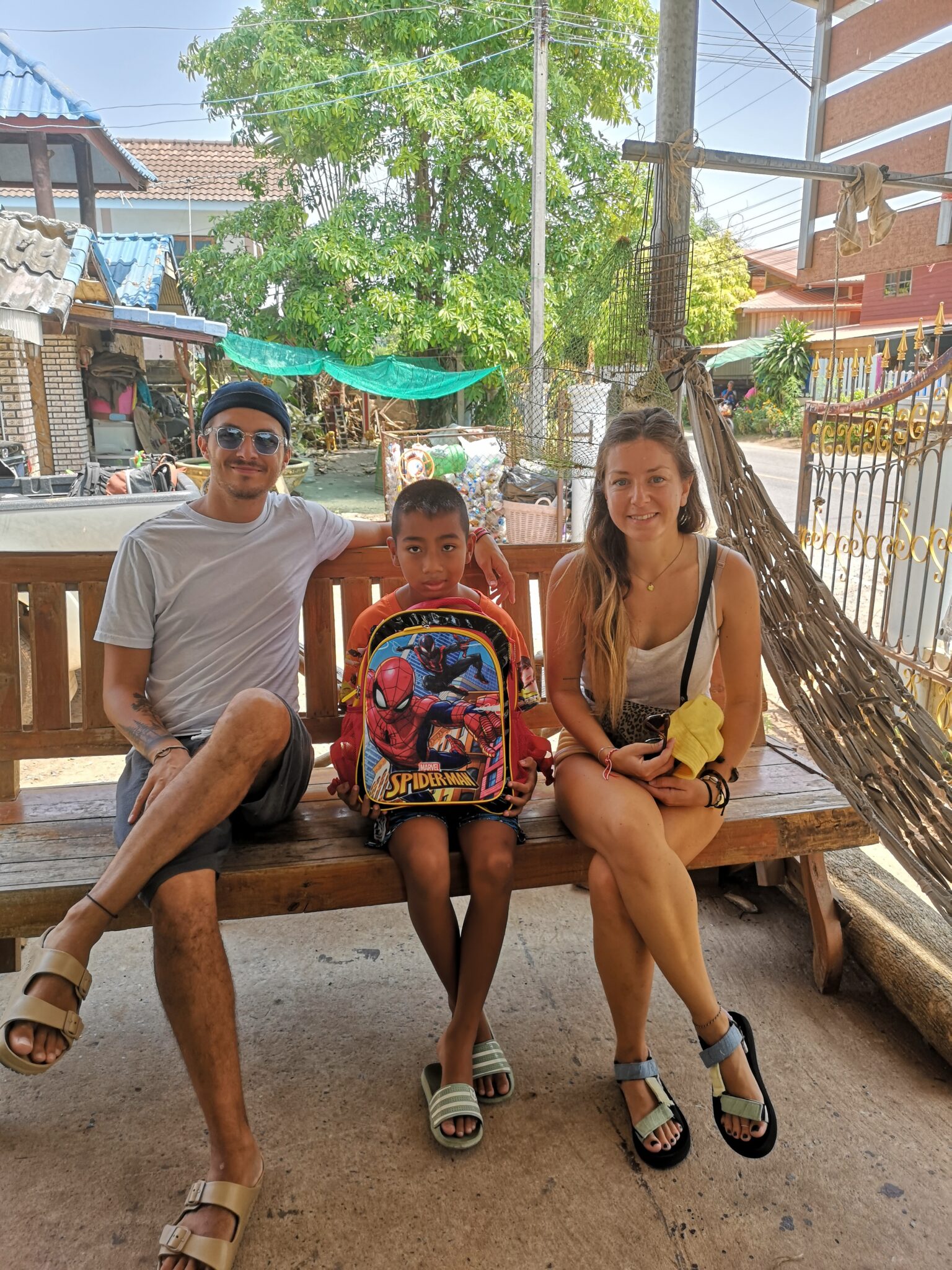
Marine is sponsoring Janyawan (Hom), a little boy from Thailand. During her trip to Thailand, she visited him at his school…
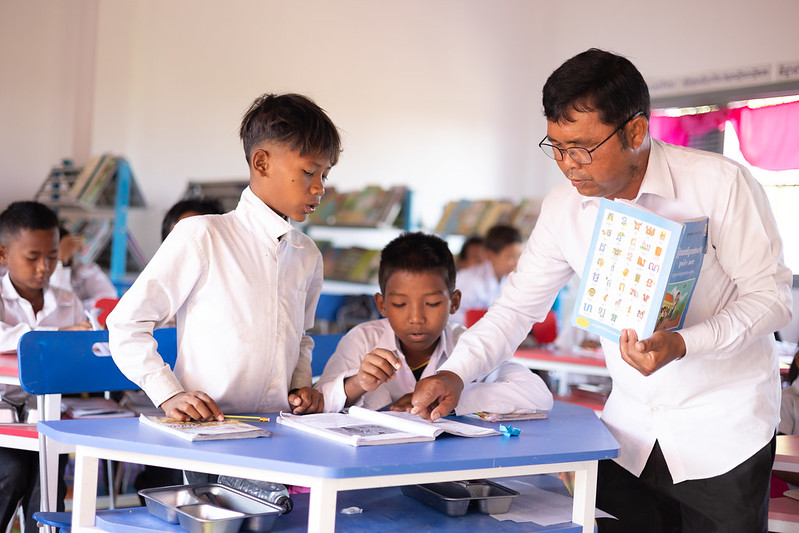
Southeast Asia’s captivating diversity and natural beauty are juxtaposed with entrenched socio-economic challenges. Poverty, high infant mortality, and limited access to education plague the […]
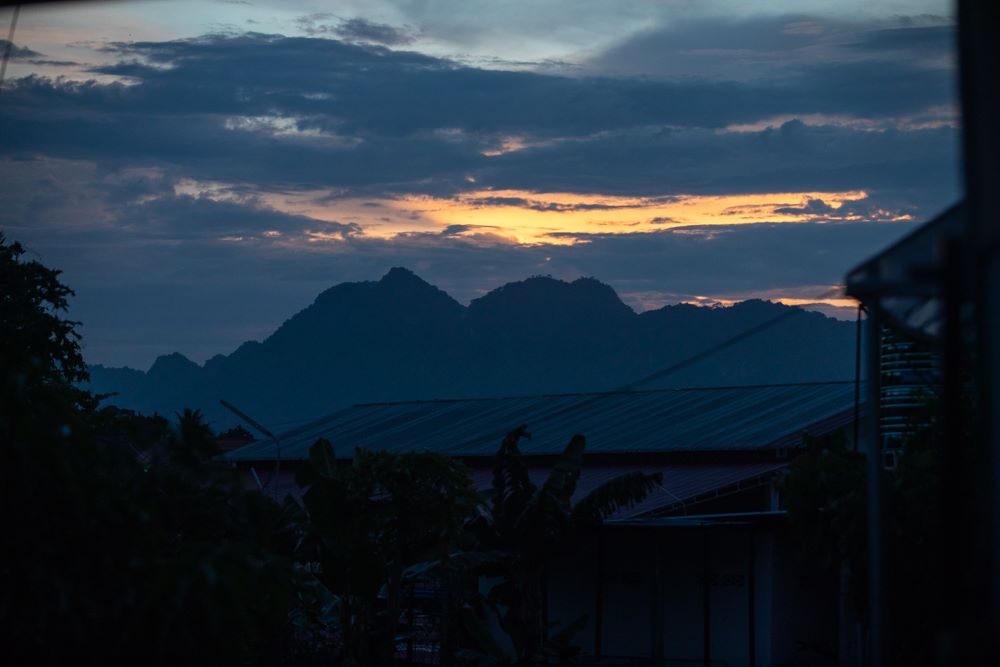
The village of Huay Duea in Laos is located 70 kilometres north of Vientiane.
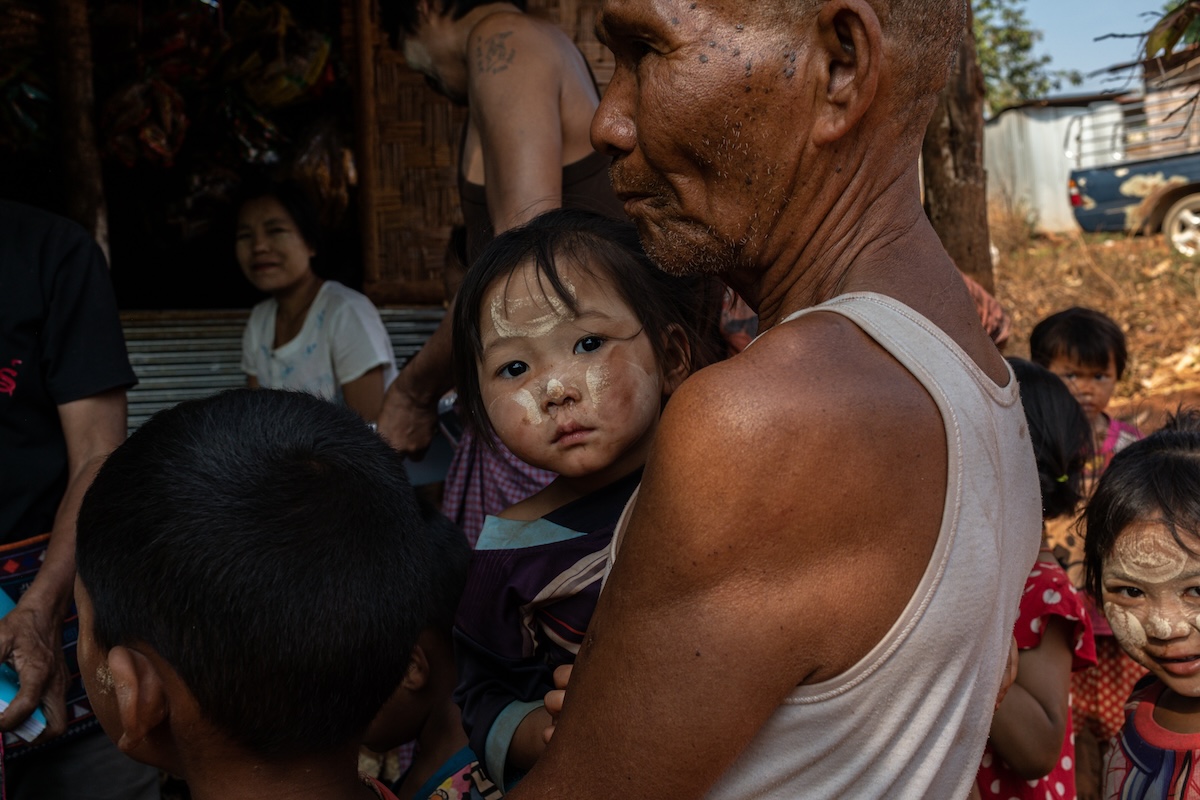
The new anti-migration policy in Thailand and the civil war in Myanmar have thrown the border area into turmoil. Faced with the horror from […]